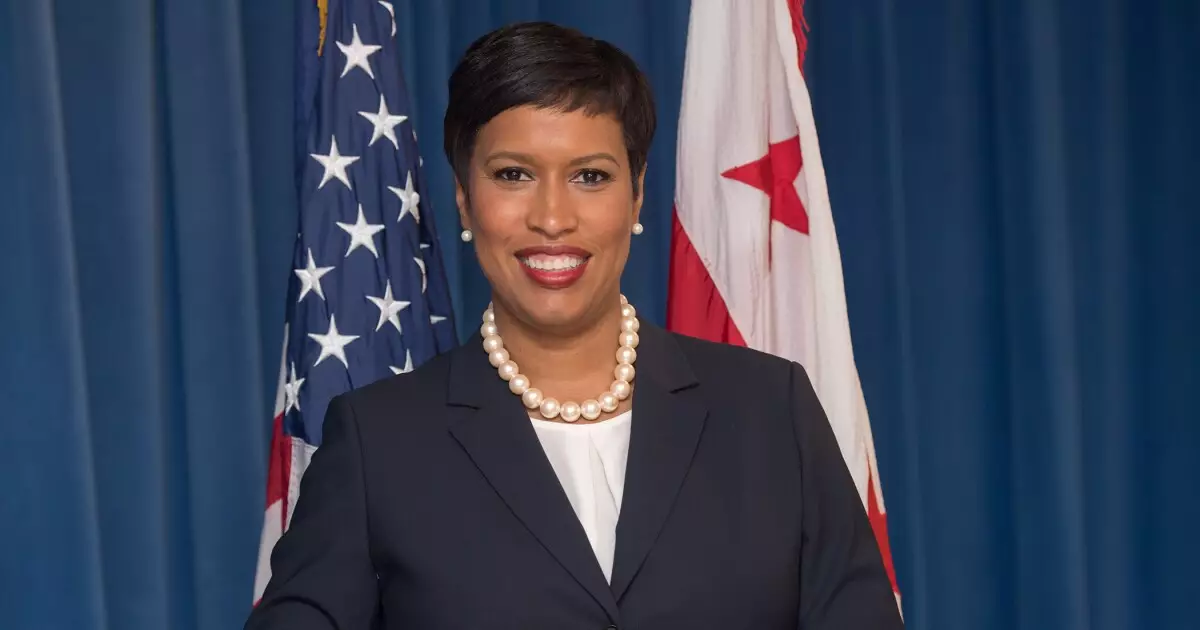The Washington, D.C., City Council has set a transformative agenda that aims to bolster both the sports culture and local economy through significant infrastructure investments. The recent endorsement of funding for the baseball stadium, complemented by the $515 million refurbishment of Capital One Arena, marks an essential step towards revitalizing the city’s sports landscape. This initiative, backed by Mayor Muriel Bowser, encapsulates a multifaceted approach designed not only to retain professional sports teams but also to invigorate surrounding businesses and community spaces.
The Financial Framework Behind the Renovations
Under the new financial blueprint, the city will allocate funds to rejuvenate the Capital One Arena, which is the home ground for the NHL’s Washington Capitals and the NBA’s Washington Wizards. The approval allows the city to acquire the arena from Monumental Sports & Entertainment for a substantial $87.5 million, followed by a lease-back agreement. Monumental has demonstrated its commitment by contributing at least $285 million toward the renovation project.
This investment is strategically positioned to enhance the local economy, reflecting a recognition that modern sporting venues can act as catalysts for communal growth. The anticipated influx of events and visitors is expected to have a ripple effect, benefiting local businesses that rely on foot traffic generated by a bustling sports environment. City officials argue, as echoed by Mayor Bowser, that this modernization is not merely a renovation effort, but rather a comprehensive push towards creating a “vibrant atmosphere” in the surrounding Chinatown neighborhood.
Central to the project’s vision is the commitment to workforce development through local hiring quotas. The city has mandated that at least 40% of contracts awarded during the renovation must go to certified business enterprises, with an ambitious target of escalating this number to 50%. This directive aims to empower local businesses and labor forces, facilitating economic growth from within the community. The construction phase alone is projected to generate nearly 5,000 jobs over the three-year timeline, providing a significant boost to the area’s employment landscape, particularly in the wake of the interruptions caused by the COVID-19 pandemic.
Navigating the complexities of labor agreements has not been without obstacles. The deal encountered turbulence during negotiations last November, primarily centered around the city’s stipulations regarding local labor union regulations. However, these challenges highlight the necessary dialogue surrounding equitable labor practices in large-scale public projects. The construction timeline is ambitious yet essential for ensuring that local workers and businesses benefit from the influx of investment in their community.
Furthermore, the City Council’s plans extend beyond just the Capital One Arena. Additional discussions are underway for a dedicated funding stream to oversee maintenance at Nationals Park, the beloved venue for the MLB’s Washington Nationals. Since its inception in 2008, this park has been at the heart of D.C.’s sports culture, and creating sustainable funding for its upkeep will solidify its status as a community landmark.
Looking Forward: The Future of D.C. Sports Venues
The city’s sports renaissance is not limited to immediate results. Long-term aspirations are reflected in efforts to regain control of the adjacent RFK Stadium site, vacant yet historically significant. Plans to renovate this 174-acre area could entice the NFL’s Washington Commanders back to a familiar territory they called home from 1961 to 1996. However, overcoming jurisdictional and legislative hurdles remains a significant barrier. The transfer of RFK Stadium would require congressional action, pointing to the complexities involved in urban revitalization projects.
The revitalization of D.C.’s sports venues through strategic funding, community-focused hiring goals, and comprehensive planning represents a significant pivot towards enhancing the city’s cultural and economic landscape. As Washington moves forward, the balance between sports, community development, and local business opportunities will be crucial in shaping a vibrant future for all its residents. The successful execution of these projects holds promise not just for sports fans, but for the broader populace of the nation’s capital.

